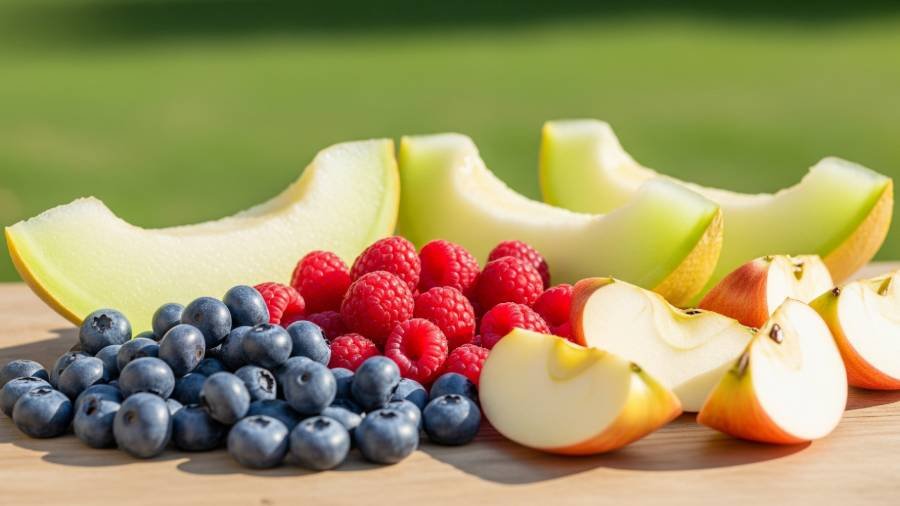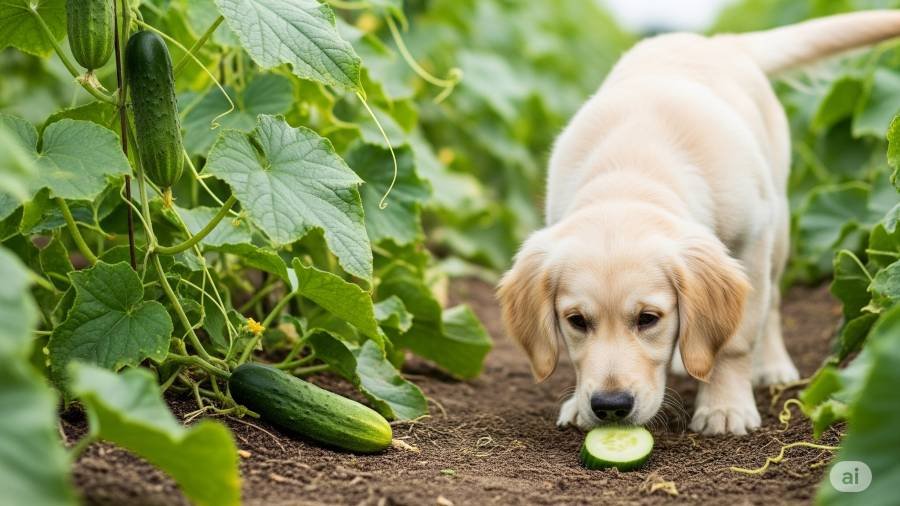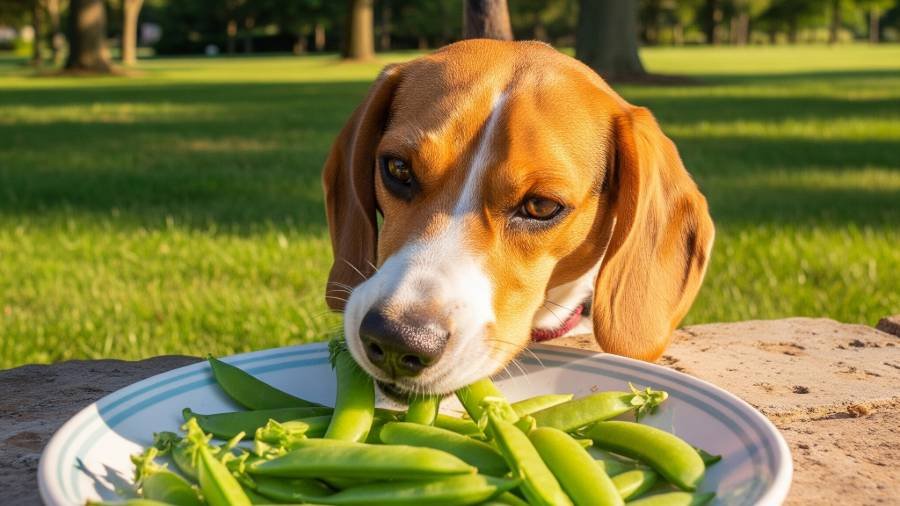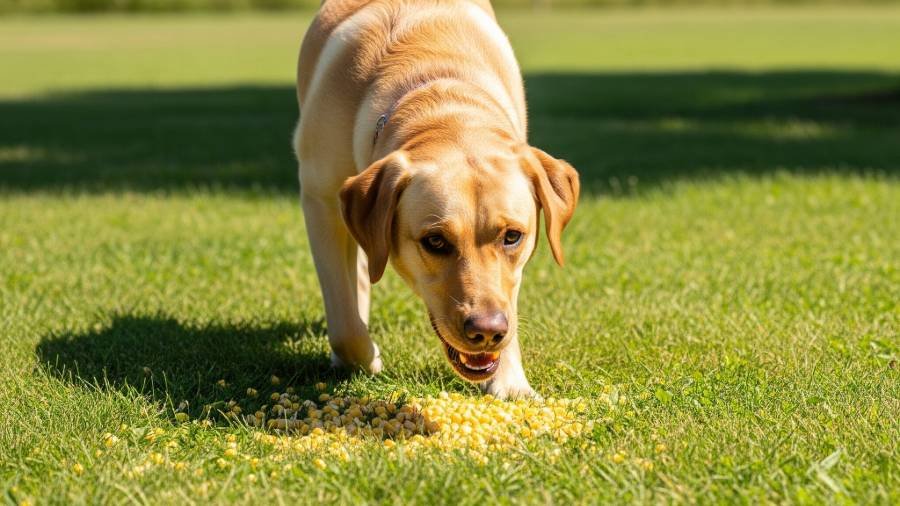Dogs can eat a variety of fruits in moderation as a treat for dogs, provided they are prepared safely and offered in small amounts to support their digestive systems.
We will provides a unique, detailed guide on which fruits are safe for dogs to eat, their health benefits, potential risks, and how to feed them.

Potential Benefits of Fruits for Dogs
When you feed your dog fruits in controlled portions, they offer several advantages as an addition to your dog’s diet:
- Vitamins and Minerals: Fruits are a good source of vitamins like C and A, plus minerals like potassium, supporting your dog’s immune system and overall health.
- Antioxidants: Many fruits contain antioxidants that combat free radicals, potentially reducing inflammation and aging effects.
- Fiber Content: Natural fiber aids digestion, helping to prevent constipation and maintain a balanced diet.
- Hydration: High water content in some fruits supports hydration, especially on warm days.
- Low-Calorie Treats: Most fruits provide a healthy, low-calorie option for weight management.
These benefits make fruits a valuable treat when introduced gradually. For more on safe produce, explore what vegetables can dogs eat.
Safe Fruits for Dogs and Their Benefits
Here are some fruits dogs can safely enjoy, each with specific advantages:
- Apples: Rich in fiber and vitamin C, apples support digestion when you remove the seeds and core to avoid choking hazard.
- Bananas: A good source of potassium and vitamins, bananas boost energy but should be given in small amounts due to high sugar content.
- Blueberries: Packed with antioxidants, blueberries enhance immune system health and are perfect for small amounts.
- Strawberries: High in vitamin C and fiber, strawberries promote heart health but need hulling to prevent choking.
- Watermelon: Hydrating and low in calories, watermelon supports summer health when seeds and rind are removed.
- Cantaloupe: Offers vitamins A and C, aiding eye health, but limit due to sugar content.
- Mango: Rich in vitamins A and E, mango supports skin health when the pit and skin are removed.
- Pears: Provide fiber and antioxidants, but remove the seeds and core to ensure safety.
- Kiwi: A source of vitamin C and fiber, kiwi boosts immunity in tiny portions with skin removed.
- Raspberries: Low in sugar and high in fiber, raspberries support weight control but limit due to natural xylitol.
Risks and Dangers of Fruits for Dogs
While many fruits are safe, certain risks arise if not managed:
- Choking Hazard: Whole fruits or large pieces, like apple cores or grape clusters, can block airways, especially in small dogs.
- High Sugar Content: Overfeeding fruits like bananas or mangoes can lead to weight gain or diabetes.
- Toxic Fruits: Grapes, raisins, avocados, and cherries (pits) are toxic to dogs, causing kidney failure or cyanide poisoning.
- Upset Stomach: Large amounts of fiber-rich fruits can cause diarrhea or bloating in sensitive digestive systems.
- Added Sugars: Processed fruits with syrups or additives can harm a dog’s health.
- Allergic Reactions: Though rare, some dogs may react to fruits, showing itching or gastrointestinal distress.
How to Safely Feed Fruits to Dogs
To ensure fruits are a safe treat, follow these guidelines when you feed your dog:
- Wash Thoroughly: Rinse all fruits to remove pesticides, even if organic.
- Remove Hazards: Take out seeds, pits, cores, and rinds (e.g., remove the seeds and core from apples) to prevent choking hazard or toxicity.
- Cut into Small Pieces: Chop fruits into bite-sized portions, especially for small dogs or puppies.
- Avoid Additives: Serve plain fruits without added sugars, sauces, or seasonings.
- Feed in Moderation: Offer small amounts (e.g., 1-2 tablespoons for small dogs, up to ¼ cup for larger breeds) once or twice a week, keeping treats under 10% of a dog’s daily intake.
- Monitor Reactions: Introduce one fruit at a time and watch for upset stomach or allergies over 24-48 hours. Consult a vet if issues arise.
- Consult a Vet: Seek veterinary advice before adding new fruits, especially for dogs with diabetes or digestive issues.
Signs of Fruit-Related Issues
If a dog eats fruits improperly or reacts poorly, look for these warning signs:
- Vomiting, diarrhea, or reduced appetite (possible upset stomach)
- Difficulty swallowing or choking (from large pieces or pits)
- Lethargy, tremors, or weakness (indicators of toxicity from unsafe fruits)
- Excessive scratching or ear infections (rare allergic reactions)
- Abdominal pain or bloating (digestive overload)
If these signs appear, stop feeding the fruit and contact a veterinarian immediately. Severe cases, such as grape toxicity, require urgent care.
Expert Opinions
Veterinary experts, including the American Kennel Club (AKC) and the Pet Poison Helpline, endorse a variety of fruits as safe treats for dogs in moderation, highlighting their vitamins and minerals. They caution against toxic fruits like grapes and recommend consulting a vet for dietary changes. For more insights, check can dogs eat oranges.
Additional Considerations
- Health Conditions: Dogs with diabetes or gastrointestinal sensitivities should limit high-sugar fruits. Consult a vet first.
- Puppies: Young dogs need smaller, softer pieces to protect their digestive systems.
- Dog Preferences: Many dogs enjoy the sweetness of fruits, but some may not. If uninterested, try can dogs eat carrots.
- Seasonal Availability: Fresh fruits like berries are great summer treats, while frozen options work year-round.
- Organic vs. Non-Organic: Organic fruits may reduce pesticide exposure, but all should be washed.
Safe Treat Alternatives
Instead of relying solely on fruits, consider these safe-for-dogs treats, tailored to enhance a dog’s diet:
- Cooked Turkey: Plain, unseasoned turkey bits provide lean protein.
- Cooked Pumpkin: A teaspoon of plain pumpkin aids digestion.
- Carrots: Small, raw carrot sticks support dental health.
- Plain Yogurt: A small spoonful of Greek yogurt supports gut health.
Introduce new treats gradually, monitor for reactions, and consult a vet to ensure a balanced diet.
Dogs can eat a variety of fruits like apples, bananas, and blueberries in moderation as a treat for dogs, offering health benefits such as vitamins and minerals and immune system support when fed in small amounts.
However, risks like choking hazard, high sugar content, or toxicity from unsafe fruits like grapes require proper preparation – removing seeds and cores, avoiding added sugars, and portion control.
Puppies or dogs with health issues like diabetes should limit fruit intake unless approved by a vet, and a balanced diet should remain the foundation.
Always consult a veterinarian before feeding your dog new fruits, and consider safe alternatives. For more on canine nutrition, explore what vegetables can dogs eat.
For additional questions about what dogs can eat or dietary plans, feel free to ask!





